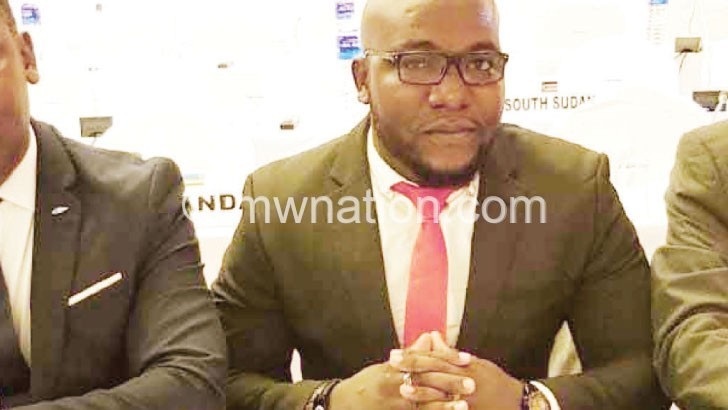‘We want a unified, patriotic and active citizenry’
Q
A lot has been said about the ministry; with some indicating that it is just meant to appease you. Of what importance is this ministry to Malawi?
A
Ensuring an engaged, patriotic, knowledgeable and empowered citizenry is at the core of the Tonse philosophy. The Tonse administration believes and values civic empowerment, peace and unity as critical factors towards social and economic advancement of the country. Thus, the Ministry of Civic Education and National Unity is established to put in place and enforce policy frameworks as well as coordinate strategic interventions that will ensure that all citizens are civically empowered and meaningfully participate in national development as one people.

The ministry intends to inculcate a culture of patriotism, citizenship, and leadership; and to expand citizen-centric public service delivery and focus of the public service on citizens. Looking through the political and social history of our country since the birth of the Republic in 1964, through the past regimes, the nation has passed through many challenging episodes that have negatively affected our unity and pride as one people of Malawi.
QFor the past six months, what has been the focus of the ministry?
A
The primary focus has been to define the strategic overview of the ministry; its scope and operating frameworks for the technical and administrative functioning of the ministry. We have established and resourced four departments which have already rolled out their functions in line with mandate and strategic objectives of the ministry. These include Departments of Civic Education; Peace and National Unity; Policy, Planning and Monitoring Unit.
To date, I can confidently report that we now have a functional ministerial structure in place and successfully rolled out our mandated functions. We have enhanced civic education through policy framework and mainstreaming by launching the Civic Education Policy, pushing for reintegration of civic education in the curriculum and setting up a Government-Citizen Forum called “Pabwalo”. We have engaged communities, leaders and civil society organisations to work together against the rising cases of defilement, rape, witchcraft accusations, corruption, and mob justice.
QAny major issues of unity that the ministry has pursued so far?
A
The ministry has rolled out a campaign on identifying and promoting transformative national values aimed at fostering purpose, patriotism and unity for the country. As part of these efforts, we have had consultative engagement and drawn insights from various stakeholders on priorities and possible approaches for promoting national values.
So far, we have met and discussed with traditional and religious leaders, district councils, institutions of higher learning and the civil society. When there were misunderstandings between Muslims and Christians regarding the billboard message [in Limbe], the ministry swiftly facilitated the resolution of the conflict.
We have also been preoccupied with laying out the groundwork for the National Unity and Peace Commission whose function will be to lead and facilitate the national reconciliation and unity processes.
Within the past six months, we have successfully developed, and submitted to the Ministry of Justice, a National Peace and Unity Bill which we intend to present at the next sitting of the Parliament. When passed, the Bill shall provide the legal and policy framework for the establishment of the National Unity and Peace Commission.
QThere are still people who claim to have been tortured under the 31-year rule of the Malawi Congress Party, requiring compensation and reconciliation. How are you helping them?
A
The Peace and Unity Bill once passed into law, will establish the National Peace and Unity Commission which will facilitate a holistic and comprehensive approach in addressing these issues. The Truth and Reconciliation processes will be operationalised under the National Unity and Peace Commission.
This truth and reconciliation process will carry forth and effectively deliver the task left unfinished by the defunct National Compensation Tribunal, which was established soon after 1994 to compensate those who suffered under the one-party regime.
We are confident that these mechanisms will help us reconcile the truth about all wrongs under the past regimes; and that responsible people are held accountable; and where necessary and in accordance with the law, people who were affected in one way or the other are accorded an effective remedy.
QWe are currently faced with the Coronavirus pandemic. What are you doing in this regard?
A
We are actively collaborating with the Ministry of Health and Ministry of Information and Communications Technology in ensuring effective implementation of information, education and communication activities to sensitize the public and promote key preventive and control behaviours.
Q
We are in 2021, any plans for this year?
A
We have had to adjust our priorities to bring forth information, education and communication support to ensure that the people are sensitized and empowered with right information to deal with the resurging Covid-19 pandemic.
We hope to overcome the exigencies due to Covid-19, to achieve our great aspirations and a number of key milestones for the year 2021. I look forward to rolling out implementation of the Civic Education Policy from the national, district to the community level.





